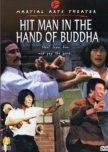
Hitman in the Hand of Buddha
4 mensen vonden deze beoordeling nuttig
Wong Chin comes to the town where his sister and brother-in-law live looking for work. Chasing a pickpocket leads him to their boss, Beggar Fan. After the two fight, Beggar Fan takes a liking to the brash young man. Not long after Wong ends up in a fight with the annoying Shan Hao. Shan Hao’s boss Tiger/Uncle 33 takes unction at the upstart’s disrespectful action and visits Wong’s family with deadly consequences. Ignorant of what has happened Wong fights with Tiger when the villain comes calling and is losing badly. Beggar Fan steps in and negotiates to save Wong’s life by having the young man leave town. Beggar Fan sends Wong to the shaolin temple for him to learn new techniques that might save his life in the future.
I love watching “Thunderleg” Lee fight, especially when he’s kicking. A 9th dan Grandmaster in Tang Soo Do and Taekwondo he’s the real deal and his high-flying acrobatic kicking needed no wires or CGI. The early fights and the end of the last fight were the best when Hwang Jang Lee was using his Thunderleg. The hand to hand and pole fighting were overly choreographed although they did display Hwang’s athletic ability and agility. A chopstick scene was quite creative in a fight against Tino. I was happy to see him able to play the good guy, a very rare event. Eddy Ko lacked in speed but made up in menace as Tiger/Uncle 33. Whenever there was a need for a smarmy or rapist character producers must have had Tino Wong on speed dial.
The story is one done a hundred times and I wished that Hwang had avoided the rape in his story. The rest was typical. Good guy comes to town, stands up for the little guy and is beaten by the bad guy. He studies a new form with training montages and then returns for the rampage and pay back. This movie was filmed in Korea so at least there was a new shaolin temple for a backdrop. There was a Hong Kong cut of the film and a Korean cut. I saw a version with English dubbing, sometimes a necessary evil with these older kung fu films, but it was also interspersed with German!
Hwang Jang Lee is one of my favorite fighters to watch and being able to enjoy his turn as a hero was a bonus. The kicking fights were fluid and exhilarating. I only wish the rest of the slower fights, while complex, had been as thrilling. As always, I grade these old niche films on a curve.
13 March 2024
Vond je deze recentie nuttig?

"My heart belongs to me"
Raging Phoenix starred Thai kicker Jeeja Yanin. The story was weak as was some of the acting, but those are not the priorities in this genre of movie. Did Jeeja kick, elbow, and pummel her enemies in style? Yes. Was the fight choreography as incredible as Chocolate? No. But most of the fights were entertaining.Brokenhearted Deu escapes from a kidnapping and is rescued by a stranger named Sanim. He battles fighters that wouldn’t have been out of place in a Road Warrior movie. Or a parkour street fight with razor prosthetics. His team is made up of three other fighters-Dogsh*t, Pigsh*t, and Bullsh*t. They’ve all lost women in their lives to the kidnappers and are resolved to bring the Jaguar gang down and rescue the surviving victims. The men practice Meyraiyuth, a form of drunken Muay Thai. Before you can say, “Wax on, wax off,” Deu is a proficient fighter. She’s willing to be used as bait to find the headquarters of the bad guys and where the women are being kept. Nothing goes that easy and they will all find themselves in considerable peril.
The story was thin and filled with man pain tropes. Jeeja Yanin had enough acting ability for what the role called for and there’s something about her that is likeable. Kazu Tang who was usually employed as a stuntman or fight choreographer was fine as the determined Sanim and object of Deu’s unrequited love. The Poop Brothers weren’t very strong actors but conveyed enough meaning to keep the story going. Though their first thirty minutes was filled with slapstick comedy that five-year-olds would appreciate.
The fights were well choreographed and the wire-work, for the most part, blended in. There was plenty of action that didn’t require any special effects help. Jeeja and Kazu were fun to watch as they kicked, bounced, and spun. Both were quick and athletic. The fight between Jeeja and Roongtawan Jindasing’s evil Jaguar had some moves that appeared all too real and bone crushing. The Poop Brothers’ style came across as a combination of Meyraiyuth and break dancing. I’ve never seen a fighting style that required spinning on one’s head! Raging Phoenix wouldn’t win any awards for the CGI backdrops to the fights, they were pretty bad. For a lower budget film, I didn’t mind.
If you are looking for a coherent and tightly written story, this won’t be it. If you are looking for superb acting, best to pass. If you enjoy high flying, flipping, crushing knee kicks and elbow hits and kickass women fighting, this might be the ticket.
11 March 2024
Vond je deze recentie nuttig?
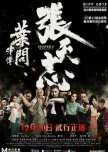
Master Z: The Ip Man Legacy
4 mensen vonden deze beoordeling nuttig
Cheung Tin Chi had been working for Yuen Wah and Tony Jaa as muscle for hire with a code. He earned enough money to open a small store under his apartment. Fate puts him in the path of Julia and Nana who are running away from Tso Sai Kit who runs the local opium den. Cheung protects the women but makes an enemy of Kit. Soon he will be working with Julia’s brother Fu who has a bar that caters to Westerners. He also comes into contact with Kit’s sister who is trying to convert their gang into a legitimate business and Owen Davidson, a giant of a man who runs an upscale restaurant and is a philanthropic businessman or so he would have people believe. Soon Cheung is in a battle for not only the lives but the souls of the people on Bar Street.
Master Z was a by-the-comic-book interpretation of history. Bar Street was pristine and gleaming, far too perfect looking. Cheung’s son even idolized Black Belt/Batman. The villain was bald, white, and enormous, similar to Daredevil’s Kingpin. You know he was a villain because he ate steak which is code for barbaric, I guess. Michelle Yeoh’s complicated Triad boss showed that the Chinese can clean up their own messes when she disarmed her drug dealing brother. But it would take a team effort to defeat the foreigners. The dialogue could be heavy handed and some of the supporting characters weren’t very strong actors but fortunately, Zhang Jin was captivating to watch even if his character was thinly drawn. Michelle Yeoh added some movie star cred to the cast and gravitas to her elegantly lethal character.
Since this was an Ip Man spinoff I expected good fights. Some of them were. Zhang Jin actually practices martial arts so that’s usually a good start. Yuen Woo Ping had to dip back into his Shaw Brothers days and bring out the wires. I don’t mind a little wire-fu, but it has to flow naturally. In a street fight as Cheung and the bad guys flew up and down the buildings awkwardly, all I could think about was the epic building fight from Chocolate (2008) with Jeeja Yanin sans wires. Much of the wire work in Z was not orchestrated well. To quote another superhero, “Jarvis, just skip the spinning rims.” Dave Bautista beating a good guy like he was using a paddle ball was another over the top stunt but showed the big man was a super bad guy. Zhang Jin was fun to watch and his moves were smooth, confident, and fast. And I will never tire of Michelle Yeoh being a badass whether hand-to-hand or with a sword. I wish Tony Jaa had been able to cut loose, but this wasn’t his movie. Kung fu movie alum Yuen Wah made a welcome guest appearance. They had plenty of veterans on screen and the excellent Yuen Shun Yi choreographing the fights. Most were well done except when they completely defied gravity in less than fluid manners.
Master Z was entertaining even when it lacked nuance. Cheung Tin Chi and his new Bar Street family made a competent addition to the Ip Man series. The grand fight between good and evil when Cheung finally regained his mojo was what kung fu and superhero movies are made for, especially when the people bond together around the hero to take back their town.
7 March 2024
Vond je deze recentie nuttig?

Horizontal or Vertical?
I watched The Grandmaster years ago and while I thought it was visually stunning, the story left me wanting. After watching several Wong Kar Wai films recently, I decided to revisit it and see if my perspective changed.In 1936 Foshan, China, Grandmaster Gong Yu Tian is coming to town to pass the torch to a new Grandmaster. The consensus is that Ip Man would be a good choice but he will have to face Yu Tian. Yu Tian’s daughter, Gong Er and Ip Man eventually spar and a connection is made despite the fact that Ip Man is married and has children. Who is Grandmaster and who is horny for whom becomes irrelevant as the Japanese invade the country. Ip Man loses his home and his fortune as he and his family face poverty and starvation with much of the rest of the people. Because he belonged to the wrong political party after the war, he moves to Hong Kong around 1950. He will once again run into Gong Er, but her life has taken a drastic change.
As with the first time I saw this film, the cinematography was gorgeous and lush. Beautiful people in beautiful costumes filled the screen. Smoke from cigarettes or trains wafted and circled about as if alive. Snow and steam formed the perfect backdrop for a cataclysmic fight. As did rain and puddles when Ip Man fought a dozen men at the beginning of the film. Music as much as the standard Wong Kar Wai dark palette of green, yellow, and shocks of red set the mood.
The fights were entertaining, but more stylistic than realistic. Forced close-ups and slow motion made the fights more dance than danger, even when people were thrown through windows. Many times I wished they could move the camera back to show more of the full body motions, but with actors who are not martial artists that likely wasn’t possible. I was happy to see old school kung fu actors like Lo Meng and Lau Kar Yung make brief appearances. And I could have used much more of The Razor played by Chang Chen.
Tony Leung Chiu Wai was an elegant Ip Man, but it was hard to connect to the character with the uneven storytelling. He was also a man with a wife and children longing for another woman. Song Hye Kyo as Ip Man’s wife was mostly an afterthought. She had scarcely any lines. The romance was focused on Gong Er as was much of the film. Zhang Zi Yi gave a good performance as the daughter who vowed to return the family’s honor even if it meant her death. Another issue I had were the relentless voiceovers and intertitles, they completely broke the rhythm and mood for me, distancing me from the characters.
The Grandmaster was a striking film to look at but not as much fun to watch as the story often stumbled. And aside from the fight at the train station, much of it will fade from memory as it did the first time because there was little substance to cling to.
6 March 2024
Vond je deze recentie nuttig?

"My sword is getting thirsty"
The Swift Shaolin Boxer, even by 1970’s Taiwanese kung fu standards, was completely bonkers. There were triple crosses, maybe quadruple, I lost count somewhere along the line. And for around 45 minutes I had no idea what was going on and who were the good guys and the bad guys and why it all mattered. The fights were fun though and used a variety of styles, weapons, and accoutrements.Angela Mao worked at an inn that was the headquarters for the bad guys. The translation said rebels, but the rebels were usually the good guys, right? Not when Lo Lieh was the leader and ordering people to be murdered. Whatever their game plan was and it was never disclosed, they were the baddies. The good guys sent Hsieh Hsing and later Wang Kuan Hsiung with letters or lists, something that people were willing to kill for. Ultimately, Barry Chan showed up twenty-five minutes into the movie in a field of flags and began dueling with people. He faced people using swords, staffs, a giant, and kung fu fighting, finally facing Chia Ling. After winning the contest he was allowed to work for the emperor and off to Angela’s inn he goes. Was Angela a bad guy? Was Barry a good guy? The bad guys were terrible at communicating to each other who was on their team because they kept fighting each other.
The fights for the time and place were actually pretty good and for the most part avoided kung fu posing although there were way too many misses. The choreography was over the top though----lots of wire fu, trampoline bouncing, gymnastics, reverse shots, and undercranking. Several people fought in an umbrella labyrinth. Why was there an umbrella labyrinth in the middle of nowhere? Who knows? Not only did the grown-ups fight, but when Wang went into a secret monastic lair in a mountain he had to fight child monks wearing gold sequined outfits with special abilities. Why were their child monks? Who knows? One of my favorite tropes-hopping vampires made an appearance and got the chance to fight, too. There was also a killer flute. Music so bad it kills!
The story became more convoluted and hilarious by the minute, fortunately the fights kept coming. I’m always happy to see Angela Mao and her fierce gaze and quick feet. Barry Chan may not have been the strongest fighter but he acquitted himself well in this movie. And Lo Lieh made every kung fu movie better by being on screen even when he was relegated to only a few minutes at the beginning and then at the end. Did I ever figure out what all the fighting was about? To quote one character, “Who knows?”
4 March 2024
Vond je deze recentie nuttig?
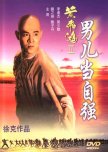
Once Upon a Time in China 2
4 mensen vonden deze beoordeling nuttig
"Who would have thought time was so important?"
Once Upon a Time in China 2 reunited Jet Li, Rosamund Kwan, and director Tsui Hark. Max Mok joined the cast as Leung Foon. This time around Wong Fei Hung had the White Lotus Cult to deal with as well as a deadly Commander all while helping Dr. Sun Yat Sen and his rebellion. And there was a secret list in true traditional kung fu film style!Whether it was led by Lo Lieh in a white wig or Xiong Xin Xin, the White Lotus Cult was always full of crazed and dangerous followers in Kung Fu Land. Based on a real sect, in this iteration, they wanted to rid China of anything remotely Western. You know they were evil because they even threw a Dalmatian dog on the bonfire for being too Western. Wong Fei Hung takes his first train ride to Canton along with 13th Aunt and Leung Foon arriving just in time for the burning and murdering. He also meets Dr. Sun Yat Sen at a medical symposium and befriends him. Along the way they rescue Chinese children who were taking foreign language classes and are on the cult’s hit list. Commander Lan appears to be all helpful and loyal but the audience knows better.
I enjoyed this film better than the first one. The story kept the action and conflict cranked but most importantly we were given two amazing fights between Jet Li and Donnie Yen. Yuen Woo Ping won the HKFA for best Fight Choreography and he earned it. He pushed Jet and Donnie and they excelled. There was wire work to be sure, but these two fast hitters were in their prime and sold every move with fists, kicks, poles, and wet towels. The fight with the cult leader relied too heavily on fantasy wire work, while entertaining, it wasn’t as good as the other two big fights.
The drawbacks for me with this film usually involved Leung Foon. His weird arousal every time he was near 13th Aunt was creepy and I didn’t find him amusing, mostly annoying. I also didn’t need to see three vomiting scenes. Because of the conflation of a cult attack, rebels with a secret list, 13th Aunt wanting WFH to notice her, a British embassy and children to protect as well as a murderous corrupt official to deal with, the story bounced around a lot and also dragged in places.
What drew me to this film and made it enjoyable were the fights between Jet Li and Donnie Yen. Without them the film would have been lackluster. It was fun to watch two kung fu movie legends go against each other in a no holds barred pole and wet towel fight.
2 March 2024
Vond je deze recentie nuttig?
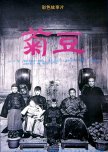
"The worst is behind us"
Ju Dou was a disturbing story set in 1920’s China based on the novel Fuxi, Fuxi. This was the third collaboration for Zhang Yi Mou and Gong Li. The film was banned until 1992, for what reason I never did figure out. Too risqué? Infidelity? Rage against the patriarchy and sexism? Political allegory? Whatever the reason, it was still nominated for Best Foreign Language Film at the 1991 Academy Awards. Though aesthetically stunning, the story could be difficult to watch.Tian Qing arrives at his adopted uncle’s cloth dyeing operation as the only other employee is quitting. The employee basically tells Tian Qing, “You’ll be sorry!” The uncle is cheap, abusive, and has tortured two wives to death and is working on his third. The new wife, Ju Dou, was a bought and paid for laborer and potential baby maker. Her major obstacle to becoming pregnant is that her husband is not only a vicious tyrant, but infertile as well. Tian Qing has a peep hole in the barn where he watches Ju Dou bathe at night, but it turns from sexual to bitterly realistic one night when he sees her bruise covered body. Fearing she’ll be murdered soon, Ju Dou seduces Tian Qing while her husband is away. She seems to be saved when she becomes pregnant, but there is no way a story set in 1920’s China is going to allow her and Tian Qing to walk away unscathed.
As usual, Zhang Yi Mou brought out his palette and soaked the screen in vibrant hues. Dark lonely nights were bathed in indigo. Sexual arousal was accompanied by flowing bolts of crimson silk unloosed as well as the hammering of the machine. The mountains, fields and trees provided bucolic backdrops. Flames of desire, murderous heat, and the destructive combustion of inevitability licked and leapt throughout the film. Aside from the scenery and sets, Gong Li had a beauty all her own. She superbly conveyed the fear and determination of a cornered woman trying to survive and find a modicum of joy in her life. Li Bao Tian as Tian Qing was given the difficult job of bringing the slow, cowardly nephew to life. Different children played Tian Bai as he aged. Tian Bai rarely spoke, but this menacing child will send chills up your spine.
Ju Dou demonstrated the plight of a poor woman in this time frame. Ju Dou was trapped in a marriage to a merciless man and also forced to work as unpaid labor. Despite all the talk of the Yang family reputation, no one stopped Jin Shan from marrying a third wife after killing the previous two. Tian Qing was trapped working for his miserly uncle and impotent to help Ju Dou both financially and emotionally. Widows weren’t allowed to remarry and even without a blood tie, an aunt couldn’t marry a nephew. Tradition had a stranglehold on Ju Dou with almost no way for her to extricate herself.
Revenge, fatal passion, toxic patriarchy, loneliness, and a kid straight from a horror movie---Ju Dou was an intense and unrelenting film. Oh, and people dyed-more than just a pun! Yet even with Zhang Yi Mou’s technicolor designs and Gong Li’s presence there was something missing. For me, part of the problem was Tian Qing’s passiveness and also the ending took a burn it all down approach. Ju Dou was good enough that I’ve watched it twice. Whether I have the tint-rest to do it in the future remains to be seen.
"Here we are at the village Wang
So many dogs…here they come
They attack us but we can’t run, so we go home"
29 February 2024
Vond je deze recentie nuttig?
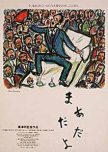
"Not yet!"
At 83, director Kurosawa Akira showed his creative drive was still going strong. However, he didn’t get his wish to die on set behind the camera on this his final film. What he did, was give us a film with a main lead who in many ways stood in for him and his desires and contemplative messages. The film might have been loosely based on Uchida Hyakken’s novel but it felt like watching Kurosawa take his final bow.In 1943 Professor Uchida greets his class and tells them that he is resigning in order to write full-time. His students are devoted to him and tell him they will continue to follow him. They help the professor when he and his wife move into a larger home which later ends up catching fire in an air raid. The couple is relegated to a small shack with a few meager possessions afterwards. The students begin work on a plan to have a better home built for the professor. To boost the professor’s morale when he regrets living the life of a beggar, they hold a birthday party for him called the Not Yet Feast on his 61st birthday. The play on words comes from the game hide and seek when children would yell, “are you ready?” and the response would often be “not yet!” or madadayo. Though provisions were few, the students and professor had a raucous time at the celebration. “Are you ready to die?” “Not yet!”
“Did that just go over their heads?”
Kurosawa’s work came across as uncharacteristically hopeful in this film. The professor was described as pure gold. Eccentric, imaginative, and a prankster, the students loved him. The students were unequivocally kind and devoted to him. Whereas most Kurosawa leads had to face grueling trials in order to have character development, the Professor came fully and nearly perfectly formed. The pessimistic and deeply flawed people were missing as well as the tumultuous inner struggles. Even the students whose names were barely mentioned were deeply kind and loyal. Unlike earlier films with biting social commentary, the historical events in Madadayo were a thin construct that had minimal impact on the characters. The hardships were briefly alluded to and overcome, unlike Kurosawa’s usual criticisms surrounding the war and post war struggles. It was if Kurosawa said, “I’ve already covered that.”
“Congratulations should be short. Eulogies should be long.”
In each of his dwellings, the Professor sat in his doorway and wrote. There were no battles or betrayals, the most tragic event in the film was when a cat went missing. This film focused on the Professor’s interior musings and the interiors of his homes and the banquet halls where the Not Yet Feasts were held. Despite his insistence on an almost hermit-like existence with signs that ranged from “The temple where guests are forbidden” to roughly translated, “Whaddya want?” the Professor was nearly always surrounded by adoring students. When the Professor needed a house, the students made it happen. When the Professor’s cat went missing, they beat the bushes to find the friendly feline. In most Kurosawa films, everyone needed to watch their backs. In Madadayo, it was the nice being nice to the nice, injected with gentle humor and wisdom.
“The flowing river never stops and the water is never the same as before. The bubbles that float in the pools, now vanishing, now forming are not of long duration.”
After I recovered from the shock of realizing that everyone in the film was affectionate and generous to each other, I settled in and enjoyed the story. Kurosawa’s film style veered closer to Ozu’s than his own. Few scenes had his three deep perspective with action going on in the foreground, middle, and background. People were often sitting in a circle on the floor talking. There was a beautifully shot seasonal montage with the small shack going through fall, winter, and spring. The characters could have used improvement. The students’ personalities were never developed and the background wife never received a name. The cat even had a name, but not the wife! No mention was made of what the German language professor wrote that was so popular.
“That will be your calling, the work you put your heart into.”
What Madadayo did give us was different generations respecting and caring for each other. Kurosawa and Uchida were both facing death unflinchingly. This was not the time for fighting, but a time of introspection and peace while also contemplating the legacy of their work. The Professor encouraged the grandchildren of his students to find their treasure and to work hard for it, much as Kurosawa had.
Despite the utter lack of conflict, I enjoyed Madadayo. Every once in a while, I need a film that envelopes me in warmth and laughter. Perhaps that’s what Kurosawa needed as well. I was pleased when I saw Kurosawa’s red glow in the last scene and beautiful, tranquil clouds appeared. Then my eyes welled with tears when I realized it would be the last time for those trademark elements. If someone had asked Kurosawa if he was ready to stop creating or studying film, I think his answer would have been, “Not yet!”
26 February 2024
Vond je deze recentie nuttig?
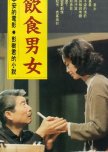
"Eat, drink, man, woman, food and sex-basic human desires"
Eat Drink Man Woman is a film by Ang Lee that I’ve watched before and wanted to revisit. I liked it even better this time than I did the first, maybe it is an acquired taste. Food, family, love, loss, and secrets made for a tasty feast to sit down to.Mr. Chu is a widowed chef who has lost his sense of taste. He has three daughters who live with him. Each lives their lives separately except for when they sit down to the elaborate Sunday meals he prepares. One by one they face challenges, and find new love or new paths to take.
The food preparation was sumptuous. Chicken, pork, fish, a variety of seafood, hot pot, all made not only to taste with the mouth but with the eyes as well. No one would have to cook for a week with the Sunday dinners the father served. The daughters didn’t eat that much and there were enormous quantities of food leftover. Much of the food was also shared with the eldest daughter’s divorced friend and child. Mr. Chu would also pack culinary delights for the child to take to school for her lunches making her very popular with her classmates. The middle daughter loved to cook like her father, but had been banished from the restaurant kitchen so that she would find a proper job. While she excelled at her position with an airline, her passion was making the dishes she’d seen her father so thoughtfully prepare.
Everyone cared about the other yet had lost the capacity to communicate freely. Only when things began to be shaken up and the status quo was flipped over and scattered did father and daughters begin to reach out again. Sometimes a pot can be simmering quietly on the stove and is only noticed when it boils over. The dish isn’t ruined if someone attends to it lovingly. Everyone in the Chu family had to discover what made them happy, what helped them be who they wanted to be. Sometimes that exploration led to loss before it led to gain. If you enjoy watching elaborate meals being prepared as well as father-daughter, and sisterly relationships being explored, this quirky family drama is seasoned to near perfection.
21 February 2024
Vond je deze recentie nuttig?
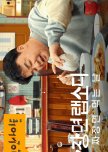
Grab a snack because this show will make you hungry!
Chinese Korean Food might have been a more accurate title than Jjajangmyeon Rhapsody. The two-episode food show with Baek Jong Won not only talked about the spicy black bean noodle dish but also other foods brought over with Chinese immigrants and adapted to Korean tastes.The first episode focused on Jjajangmyeon-how it evolved and became one of the most popular dishes in Korea. A celebratory dish at first, it’s now delivered to pool halls, offices, farm fields, and even boats. Six million bowls of the gooey black delight are sold in Korea every day. If the noodles were lined up end to end they would circle the globe 1 ½ times daily. Originally, a cheap food Chinese laborers cooked it slowly turned into the dish it is today. Chinese “places” as they were called in the 1960’s after a law was passed preventing the Chinese from buying real estate and businesses were quite popular and about the only foreign food available. When the economy accelerated in the 1980’s, Chinese restaurants took advantage of delivery service to expand their clientele.
Baek and other guests showed tips on how to enhance the eating experience. The main rule was to not be embarrassed about your face getting messy from the dark sauce. Different varieties and techniques were explored as well as how to spot an authentic Chinese restaurant. Brief historical moments that influenced where the Chinese settled were also thrown in.
Episode 2 covered Jjamppong. Apparently, one of the great dilemmas in a Chinese restaurant is whether to order Jjajangmyeon or Jjamppong. The evolution of Jjamppong from a mild dish to the torridly hot, “adult” dish was explored. Jjajangmyeon has relatively fewer variations whereas Jjamppong has endless varieties. Foodies take Jjamppong food tours, and new takes on the popular dish and hangover cure are created all the time. Two men have tried 500 Jjamppong places in eight years!
Episode 2 also covered Yaki Udon, Mandu (Korean dumplings), Tangsuyuk (Sweet and sour) and fried rice. Some Chinese immigrants came voluntary, others were voluntold by the Japanese when they occupied the peninsula and needed more laborers at the ports to load up the Korean rice on ships bound for Japan and its army. After the Korean war, Americans shipped large amounts of wheat to Korea which they put to good use in making tasty noodles.
I wish they’d given more credit to the hard-working Chinese immigrants who faced discrimination personally and legally and found a way to succeed. Just as they did in the United States, the Chinese often began restaurants and adapted their food for their new home. The documentary made it seem as if the Koreans’ tastes caused the dishes to be delicious instead of the originators of the food working to make them more palatable for their customers.
I enjoyed watching how different chefs created variations of Jjajangmyeon and Jjamppong, pouring their love and creativity into the popular noodle meals. Jjajangmyeon is a dish that brings happiness as well as satiation and that joy was infectious. If you enjoy food shows, this is one to give a try. Just don’t forget to have a snack nearby.
18 February 2024
Vond je deze recentie nuttig?
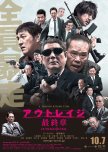
"Your attitude determines whether you are poison or antidote"
Outrage Coda brought Beat Takeshi’s Outrage trilogy to a fitting finale. Old school yakuza Otomo had been through a lot in the last two films, but he wasn’t through with the Sanno and Hanabishi families. If they’d left him alone, he might have been willing to let bygones be bygones. Too bad the younger yakuza weren’t smart enough to respect their elders, especially when their elder was a no-nonsense killing machine.After the incidents at the end of the previous film, Otomo took powerful fixer Chang up on a job offer and became the boss of his Jeju Island casinos and hotels in South Korea. Otomo and his underling Ichikawa spent their afternoons fishing and hanging out, that is until a Hanabishi yakuza named Hanada showed up. The cocky gangster had unusual sexual proclivities and hurt two of Otomo’s prostitutes, disrespected him, and killed one of his men. The Hanabishi family’s new head was a businessman who mishandled the whole affair with Otomo’s boss, Chang. Nomura, the new boss, was a businessman who’d never been to prison and had no tattoos and lacked the respect of the older executives. He attempted to have Chang murdered as well as ordering Nakata to murder his sworn brother, Nishino. Otomo never needed much of an excuse to go on a murderous rampage and rampage he did, taking revenge on anyone left who wronged him in the last two films and the current one. He made the Valentine’s Day Massacre look like a Sunday school picnic. Retribution thy name is Otomo or “F*ck Off”, whichever you prefer.
The original movie was wall to wall betrayals, torture sessions, and gruesome murders. The second film took the time to develop relationships and explain the treacherous maneuvering. This last film focused on the old guard having had enough of the lack of respect for the code by the younger upstarts. Much of this film focused on Nakata and Nishino’s strategizing in order to stay alive and remove obstacles to their power. This time instead of being everyone’s pawn, Otomo made his list, checked it twice and erased anyone on it. Despite the high body count, it felt lighter in tone than the others. Coda had more humor than the previous two, dark as it was.
Otomo kept to the code until the very end, showing he was a badass who never blinked in the face of death. He and the Habanishi brothers demonstrated why you’d best not underestimate old guys, there’s a reason they were still around in a job where most employees were given the early retirement plan paid out in lead. Outrage Coda wrapped up the trilogy in the only way a yakuza film could be, in blood.
17 February 2024
Vond je deze recentie nuttig?
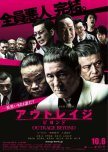
"What are you packing? A toy gun?"
Outrage Beyond is the second in the Outrage trilogy featuring director Beat Takeshi as the ominous yakuza Otomo. In this installment Detective Kataoka is called in to use his connections with the different families to diffuse the Sanno family’s power after they assassinate a police officer.When the Sanno family kills a cop and begins pulling the strings of different politicians, Detective Kataoka goes to work whispering into the ears of disgruntled executives in the Sanno family. The new Sanno head has been ignoring the seniority system and pinching pennies while filling his own coffers. The rival Hanabishi family is reluctant to start a war even with the rumor that Kato killed his previous boss in order to be promoted. Kataoka pulls out his hidden ace when he has former yakuza boss, Otomo, paroled early from prison. So far everyone had been fairly civil in their expensive suits, but made the mistake of going on the offensive with Otomo. It’s all fun and games until someone pulls out the power tools for a good old fashioned gang interrogation.
This film was more about chess moves than gang violence. Like politics, yakuza alliances make strange bed fellows. Both friends and enemies alike betrayed each other. That’s not to say in the final third of the movie that the bodies didn’t start piling up, because they did. As the families went to war, the police sat back and watched. The acting was fairly average for a crime film. Kohinata Fumiyo made for a smarmy and conniving cop who was a little too close to the families. Matsushige Yutaka, Midnight Diner’s hot dog loving yakuza, played the straight laced cop appalled by Kataoka’s deadly methods. Beat Takeshi gave Otomo a world weariness for the yakuza with principles and who was also handy with a power drill. The plot while predictable was interesting though it did tend to drag when the negotiations and puffed chest scenes went on too long.
Outrage Beyond brought plenty of double-crosses, satisfying comeuppances, and even finger mutilation. The big moral of the story is if you want to keep your job as the head of the family, don’t cheap out and not provide a meal for your officers, a well fed exec is a less deadly exec. If you enjoy gangster movies and don’t mind more talking than usual in your crime families, Outrage Beyond is one to give a try.
16 February 2024
Vond je deze recentie nuttig?
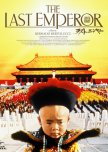
"You are responsible for what you do"
The Last Emperor was epic in scope with filming for the first time in the Forbidden City, stunning costumes, and an enormous cast. It covered sixty years of Chinese history largely through the eyes of one man…the last emperor of China.The film bounced back and forth in Emperor Pu Yi’s life in chronological order from his coronation at the age of 3 with his future life as a prisoner of the PRC. From the time he ascended the throne he was told he could do anything, anything that was except leave the Forbidden City. All of his needs were taken care of with the exception of having no friends, his company primarily old eunuchs. As he aged, he was given a Scottish tutor named Reginald Johnston with whom he became close. While safely ensconced behind the city’s walls, different factions gained and lost power outside. Instead of escaping those walls, he escaped into marriage with his Empress and concubine.
After the Beijing Coup in 1924 he bid a final farewell to The Forbidden City and was sent to Tientsin where he lived a hedonistic lifestyle. The Japanese army convinced him and/or coerced him into becoming the emperor of Manchukuo, previously Manchuria and Pu Yi’s ancestral home. Instead of finally becoming the ruler he had dreamed of being, he found himself a puppet of the Japanese. Things went from bad to worse there when the Japanese lost WWII and were looking for the exit door. Pu Yi was captured by the Russians and later turned over to the PRC where he was imprisoned for ten years in order to be “re-educated”.
As glorious as the sets, scenery, and costumes were, Pu Yi wasn’t always the most fascinating character. He went from being a figurehead to a puppet to a prisoner. He had no say in the government and often led an insular life. Dramatic events in China and globally impacted him on the periphery but politically speaking he was as impotent as his eunuchs had been. Prison gave him new insights into himself, others, and the war. A person who had his share of damaging tantrums, he had to learn to grow up. He’d never put toothpaste on his toothbrush or learned how to tie his shoes, soon he had to also learn to pee correctly and to garden. While imprisoned Pu Yi was shown a WWII film demonstrating how the people had suffered and the terrible atrocities committed. After the reality check his reformation and realization began to take hold.
I wish Italian director Bernardo Bertolucci had briefly explained some of the political upheavals better instead of just showing another set of beige uniforms in charge. The cinematography was good and maybe it was because they were trying to show a more realistic view of the places Pu Yi lived in or perhaps it was mood lighting, but many scenes seemed abysmally dark. The version I watched had most of the dialogue in English with some Japanese in a few scenes which was disappointing. I would have much preferred for the dialogue that was supposed to be Chinese dubbed in Mandarin. The Last Emperor’s greatest achievement was not the long glossed over historical events covering six decades, for many in 1987 it was the first look into the magnificent 9,999 room palace and UNESCO World Heritage Site.
Joan Chen’s performance as Wan Rong plumbed emotional depths as the Empress became more isolated and dependent on opium. John Lone did his best with Pu Yi, but the character was one I felt little sympathy toward. The wars and tragedies never really touched him except for preventing him from being sole ruler over China. The late Peter O’Toole showed up in the role of Pu Yi’s tutor adding some gravitas to the cast.
The film didn’t touch on the cost to Pu Yi’s people during all of the political upheavals. Even during the various battles and revolutions he ate and dressed well, always had whatever he wanted while many of his people struggled for safety and daily needs. The film ended with Mao’s rule and cult of personality. Despite eliminating the imperial court, they traded one Emperor for another of sorts.
13 February 2024
Vond je deze recentie nuttig?

"Memory, time, and Camembert cheese"
Walang KaParis followed the ups and downs of an artist in Paris. The tropes were strong with this one and the foreshadowing let you know exactly where the story was going if you’ve ever watched a romantic movie before. Still, the actors were likeable enough to enjoy their romance in the City of Lights.JoJo makes his living as a street artist and mime. His unique catch as a painter was to do his work in coffee. He’s haunted by his old paintings of a woman he doesn’t remember. How can he have a heart to share if he can’t remember the one who owns it? One day, a woman named Mary comes up to him and tells him she is the woman in the paintings which he doesn’t believe. She pushes hard for a romance to begin with a reluctant JoJo and for a while it does. Then the real story emerges which is bittersweet. Time would tell if they were fated or destined.
Walang KaParis covered nine years and two continents. Within five minutes I’d figured out the familiar plot. As with other genres, execution is key. This film didn’t add anything new, but the actors had a comfortable rapport with each other, though not sizzling. Each took turns chasing the other and as the song said, “And even if the time doesn’t come that you learn to love me back, just don’t stop me from loving you.”
If you are looking for an easy, cheesy romantic film to watch, you could do worse than Walang KaParis.
8 February 2024
Vond je deze recentie nuttig?
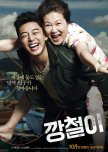
Three coincidences equals Fate or lazy writing
Tough as Iron with Yoo Ah In was a film with an identity crisis. At its heart it was a movie that seemed inspired by Gilbert Grape right down to the opening scene. To make it more exciting they threw in gangsters and the Yakuza. Then for good measure they wedged in a love story. Sometimes too much is too much.According to the synopsis Gang Cheol was a legendary street fighter. Maybe it was Sesame Street? The fight scenes weren't very well choreographed and his most powerful skill was a killer stare. Cheol's life entailed a job working on the docks and caring for his mother. His mom often accompanied him so that she wouldn’t wander off, which she still managed to do quite often. Not only did she have dementia, she was a diabetic with kidney failure. Cheol went to great lengths trying to find a way for her to receive a transplant. Cheol’s buddy, Jong Soo, wanted to be somebody and get rich so he joined a gang with a sashimi loving boss with a hotheaded brother. Of course, the trouble magnet entangled Cheol with his criminal co-workers. In moments when he wasn’t dealing with his mother, his troublesome friend, working, trying to find 100,000 won for his mom's surgery, or dealing with the gangsters, Cheol ran into a pretty photographer visiting Busan which meant it had to be fate.
The gangster angle was weak and took away from the relevant story of Cheol and his mother. Maybe the writers felt that Gilbert Grape would have been more interesting if he’d gotten mixed up with gangsters instead of planning a birthday party. The romance in this film wasn’t a lifeline or an insight into a better life, it seemed more like vacant window dressing. Yoo Ah In and Kim Hae Sook had wonderful chemistry together. There was more than enough story to tell as they navigated the stage in life when the child becomes the parent with little time for himself. This story could have used a romantic involvement to show him what he was missing. But Tough As Iron’s incoherent gangster escapades pulled too much focus from the heart of the film leaving no room for a well-developed love story.
Tough as Iron had the potential to be a powerful and meaningful film, especially with the caliber of actors involved. I thoroughly enjoyed watching the interplay between Cheol and his mother, the good days, the bad days, the exhaustion, heartache, and love. I found their relationship much more fascinating than a maniacal killer who stuttered.
5 February 2024
Vond je deze recentie nuttig?

 55
55 223
223 11
11






















